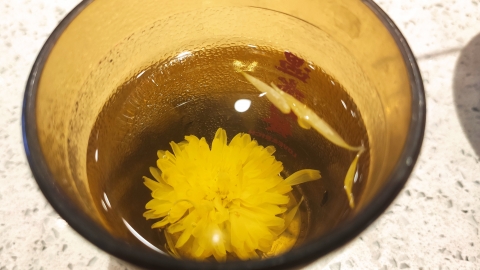What are the effects of chrysanthemum tea on the fetus?
Chrysanthemum tea poses no direct risk of fetal malformation, but may affect gastrointestinal function, excessive consumption can lead to a cold body constitution, it has no significant nutritional supplementation effect, and special constitutions require caution. Consumption during pregnancy should be strictly controlled in terms of method and quantity. If discomfort such as abdominal pain or diarrhea occurs after drinking, medical advice should be sought promptly.
1. No direct teratogenic risk: The main components of chrysanthemum tea are flavonoids and volatile oils. Currently, there is no clear evidence indicating that it causes fetal malformations. Occasional and moderate consumption during pregnancy generally does not directly harm fetal development.
2. May affect gastrointestinal function: Chrysanthemum tea is slightly cold in nature. Pregnant women often have sensitive digestive systems, and excessive consumption may irritate the stomach and intestines, causing bloating or diarrhea, which indirectly affects nutrient absorption and is unfavorable for fetal growth.

3. Excessive intake may lead to a cold body constitution: Long-term and heavy consumption can increase internal coldness, potentially causing symptoms such as sensitivity to cold and cold hands and feet in pregnant women. In those with inherently deficient-cold constitutions, this may impair blood and qi circulation, indirectly affecting fetal well-being.
4. No significant nutritional supplementation: Chrysanthemum tea has limited nutritional content and cannot provide essential nutrients such as protein and vitamins necessary for fetal development. It should not be relied upon for nutritional support during pregnancy.
5. Caution required for special constitutions: Pregnant women with conditions such as gestational diabetes or a history of allergies should carefully evaluate before consuming. Sweetened chrysanthemum tea may affect blood glucose levels, and individuals with allergic tendencies may experience allergic reactions, indirectly threatening fetal safety.
When consumed during pregnancy, sugar-free pure chrysanthemum tea is recommended, with no more than 5 grams per serving and no more than twice weekly. Avoid drinking on an empty stomach; consider pairing with red dates to counteract its cooling properties. Prioritize plain water for hydration to ensure dietary safety throughout pregnancy.




